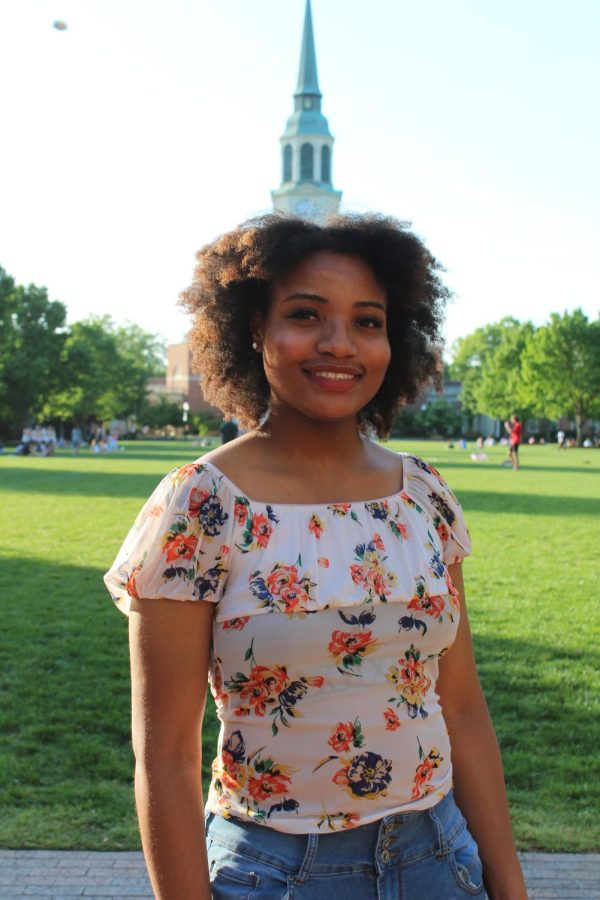Biology: Joy Oguama
When Joy Oguama arrived at Wake Forest, she knew she was going to expand on her high school successes in math and science by majoring in a STEM field, but her initial plan to study statistics was sidelined when she discovered her love for a different subject — biology.
“I love learning about how life works from large scale to the minutiae,” Oguama said. “It’s just so fascinating to me, especially considering there’s still so much out there that we don’t even know about.”
The professors in Wake Forest’s Department of Biology, Oguama explained, were especially influential as she navigated the major. One thing Oguama highlighted about the department was that the professors aren’t “cookie-cutter” and all have unique personalities. Dr. Miriam Ashley-Ross, for example, teaches an animal physiology course, and when Oguama went to her office hours, she found that Ashley-Ross’s door was covered with biology-related memes.
In the notoriously difficult pre-med track, some classes were more challenging than others.
“Microbiology was hard,” Oguama said. “But it was the one course that taught me how to really study, and that kind of changed my trajectory. Once I was able to get over that hurdle, I realized, ‘Yeah, I could do this with anything.’”
That microbiology class was taught by Dr. Andrew St. James, who designed the course to offer “second chances” to students who initially did not perform well on an assignment.
“Initially, I felt like I just couldn’t get it,” Oguama said. “But then I just kept trying, and I started to get it. The chance to retake something and then do better than the first time really helped.”
Oguama also kept busy outside of the classroom as an active participant in the African and Caribbean Student Association (AfriCaSA), the Black Student Alliance (BSA) and the Wake Forest Catholic Community. She also assisted with a research project. Working alongside graduate students, she worked at the Cordy Lab with Dr. Regina Cordy on a project examining the effects of different growth conditions of malaria pathogenesis. Specifically, the team studies how varying oxygen conditions affects a malaria variant called Plasmodium falciparum.
On the team, Oguama was part of a malarial parasite-counting team that contributed to a graduate student’s research project. Her team and three other counters took images of prepared slides of red blood cells that were subject to different oxygen conditions for a period of time and counted the number of parasitized cells in each sample. They then determined the average percent parasitemia for each condition.
“This semester, we’ve had to read a little bit more about [the research], and I’ve been watching all the graduate students and their presentations,” Oguama said. “So through that, I’ve been able to learn more about it, and when you know more about what you’re doing, it becomes a little bit more enjoyable.”
After graduation, Oguama plans on taking “at least two gap years,” in part to prepare for the MCAT before applying to medical school. She has a job lined up at Duke University Hospital as a patient safety attendant — where she will assist a registered nurse in the trauma unit — to gain more hands-on clinical experience.
To incoming biology majors, Oguama stresses that “it is okay not to love everything about biology” and that everyone has their own individual journey. She says that, instead of engaging in self-criticism, confidence and perseverance are vital.
“Believe in yourself and have confidence in yourself,” Oguama said. “The biggest way to kill your whole morale is to compare yourself to other people, especially other classmates. Just keep going. Everyone’s got their own direction.”
